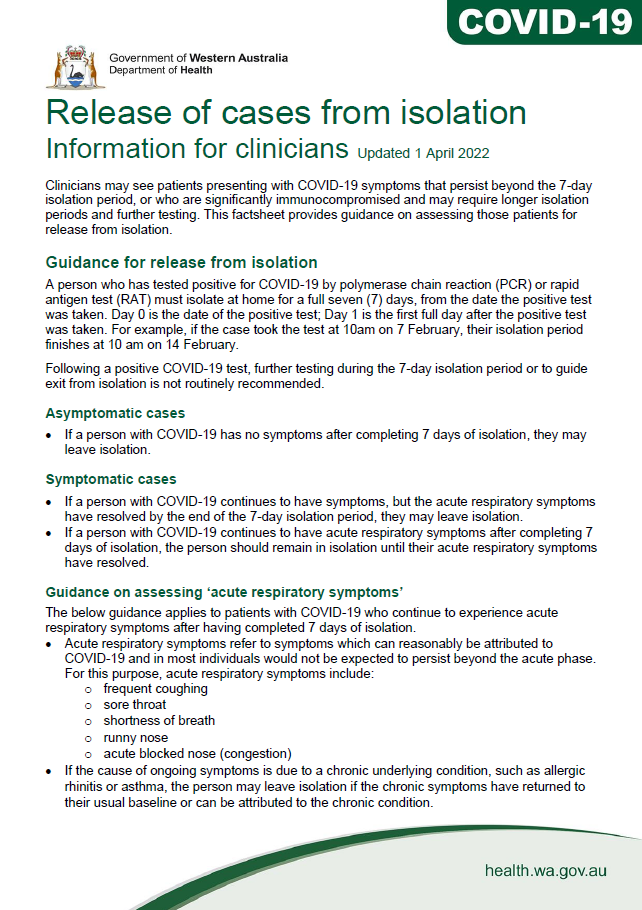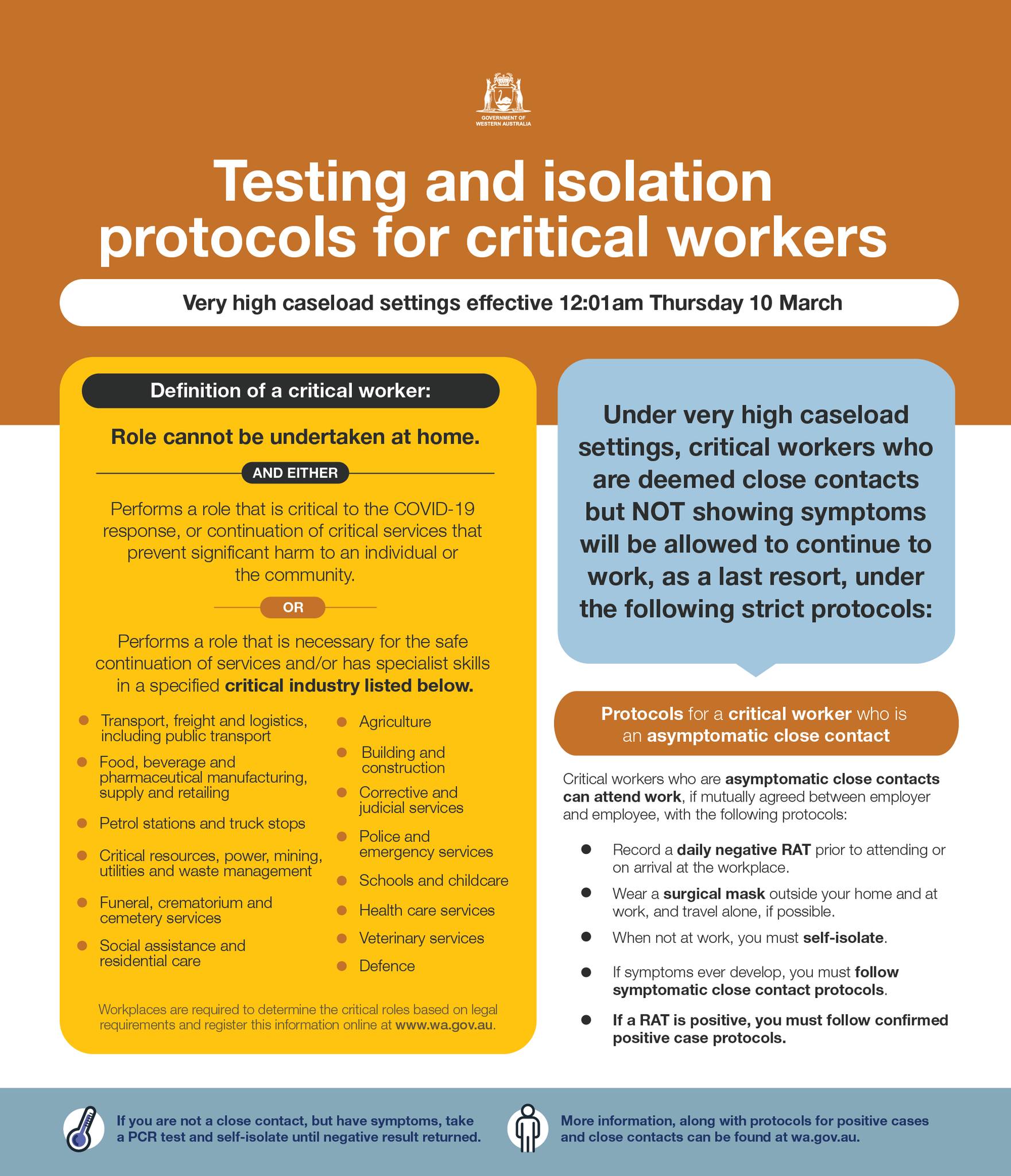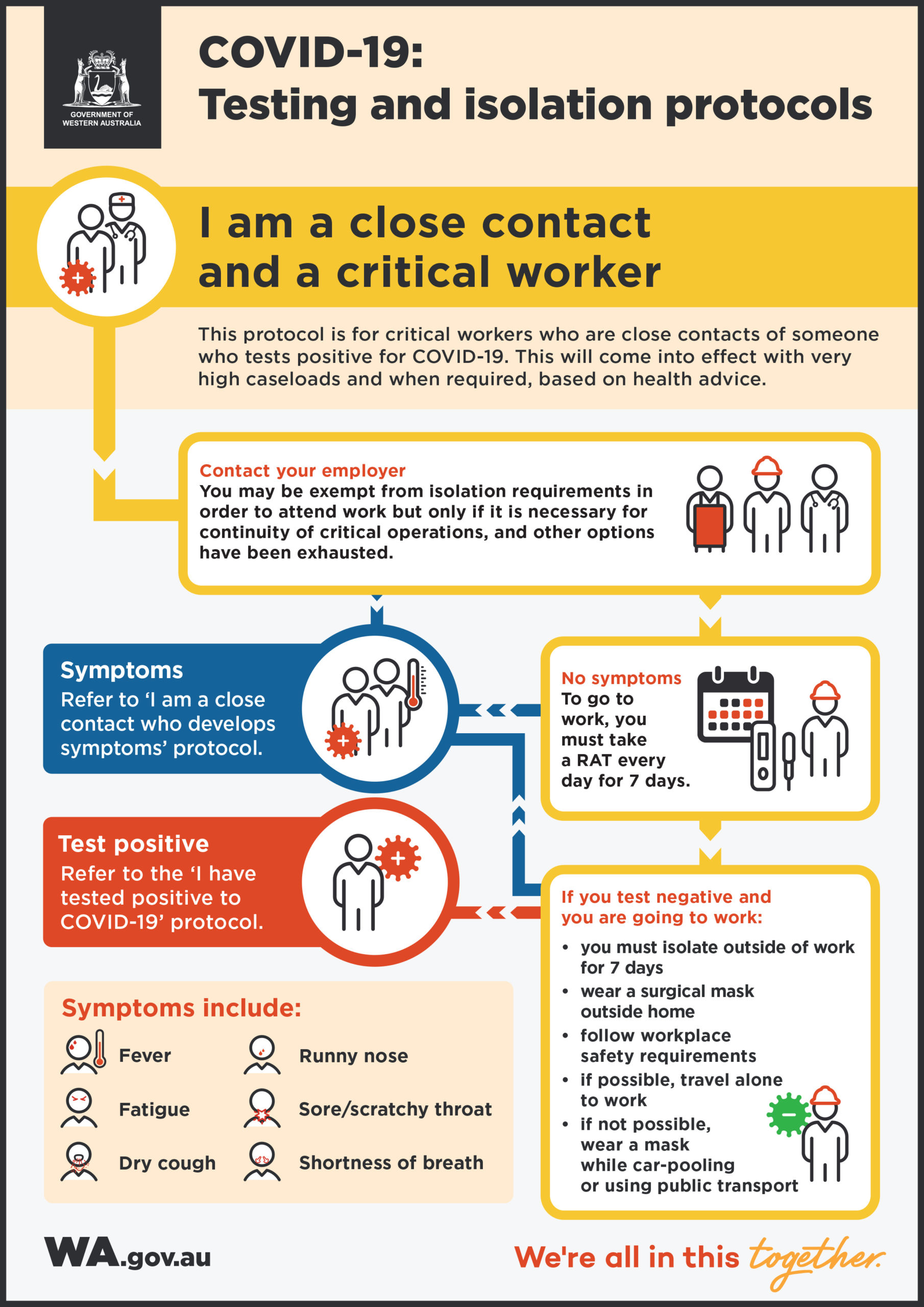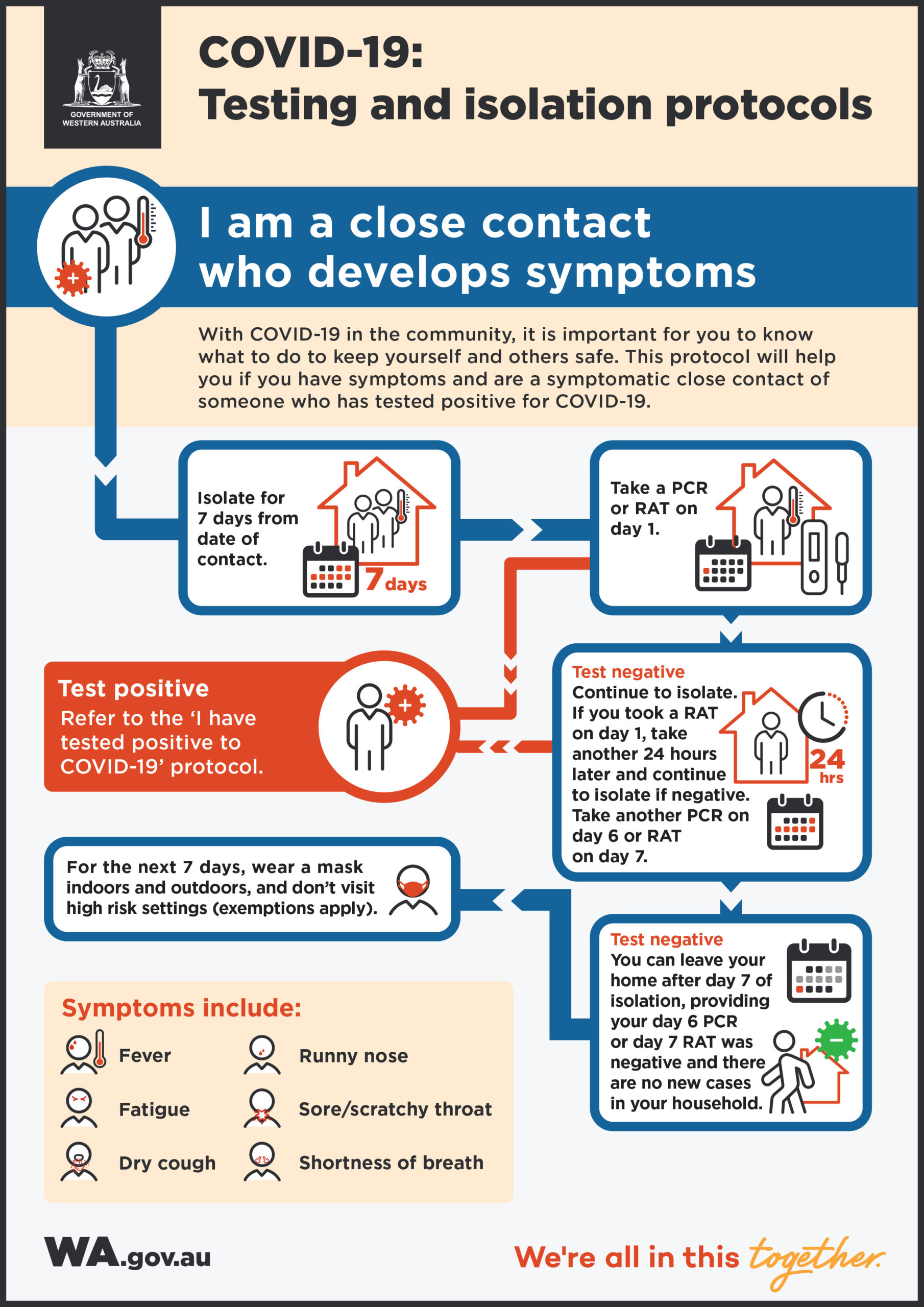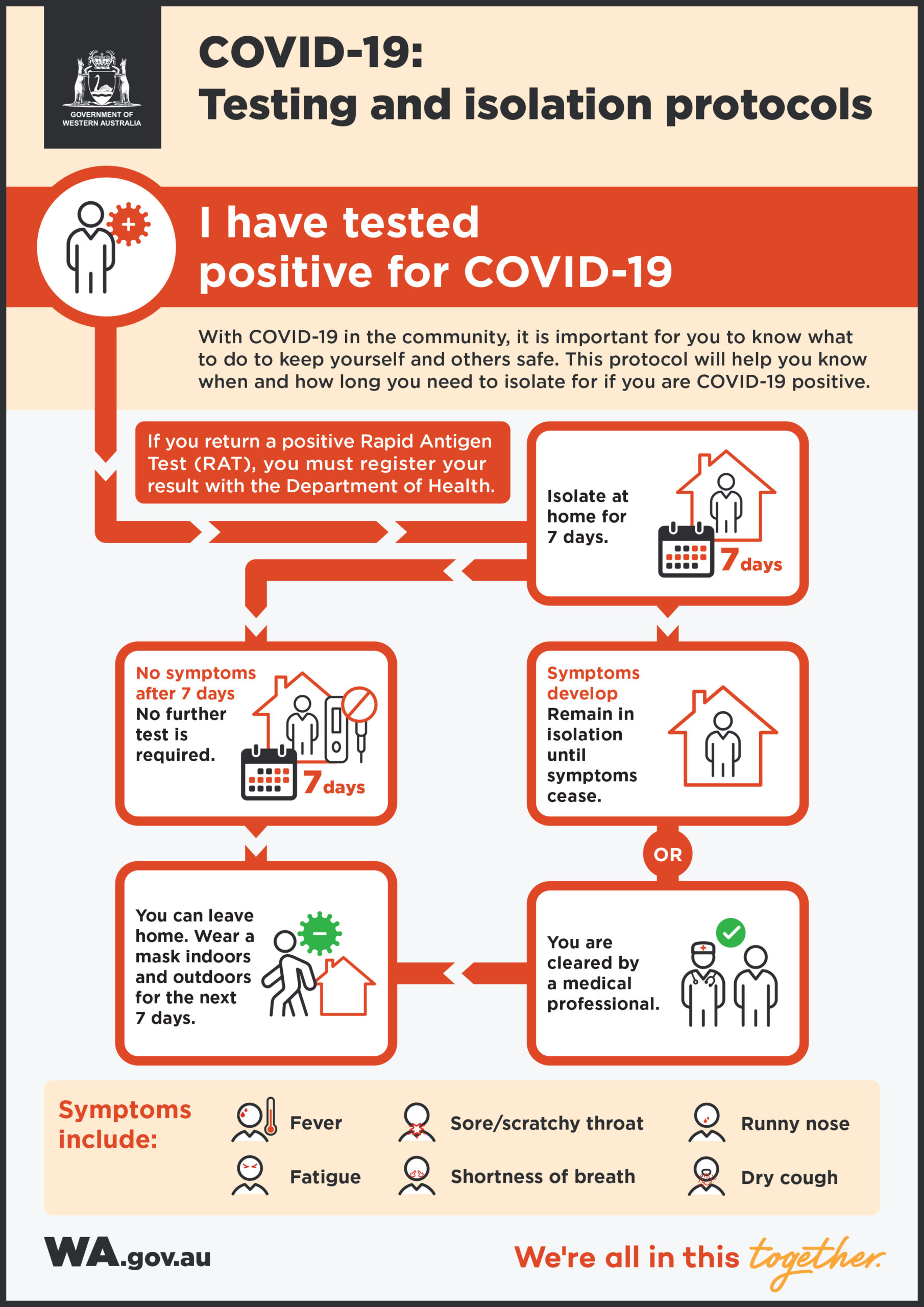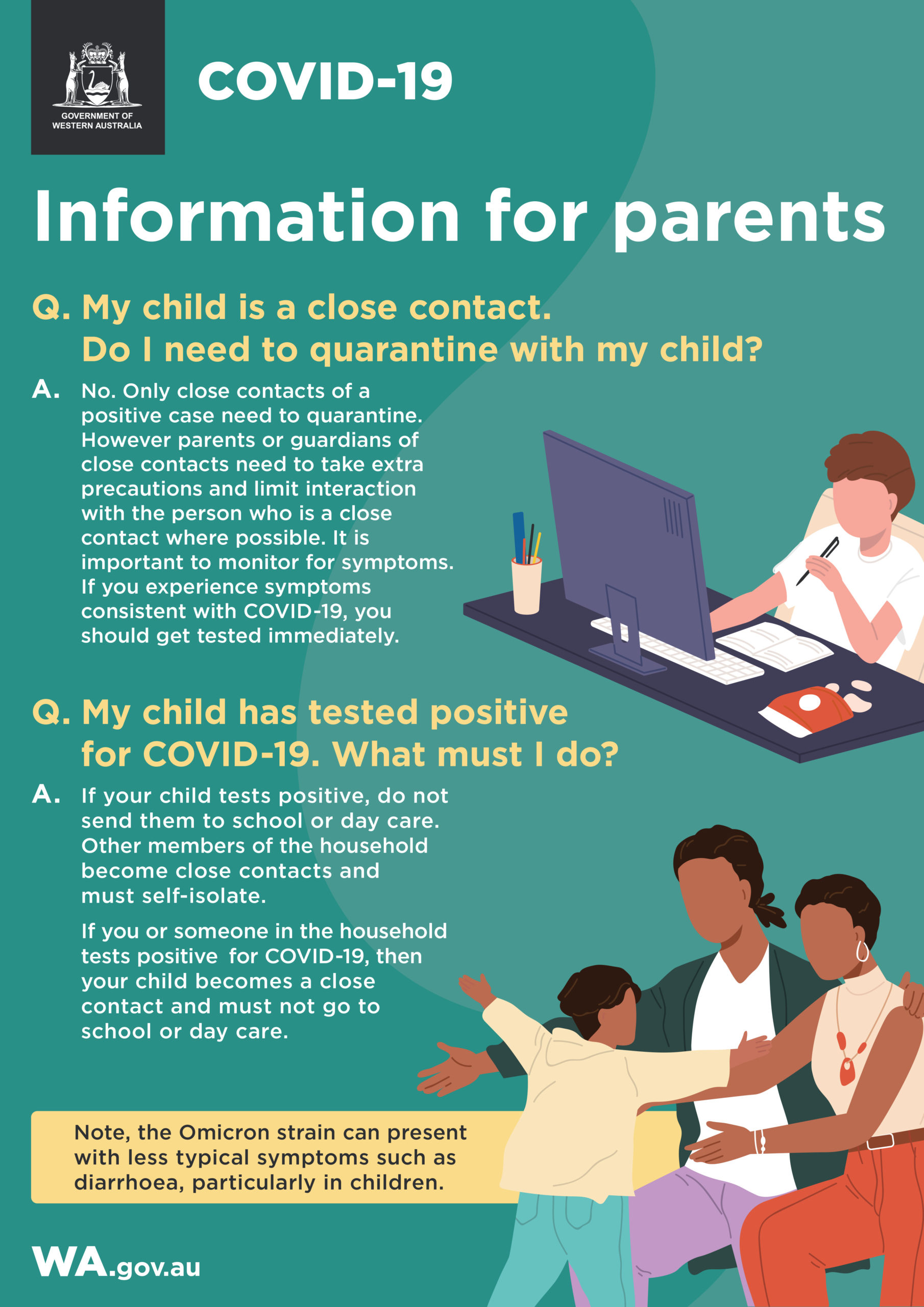COVID-19
Staff updates
Staff memos
Dear Colleagues
Thanks to the efforts of the WA community, public health and social measures will ease from 12:01am, Friday 29 April, as Western Australia’s soft landing through the Omicron wave has been secured. Based on the latest health advice, WA reached its COVID peak four weeks ago. With hospitalisation rates, intensive care units, and COVID-19 infections lower than anticipated, public health and social measures can safely ease.
Read the full update - https://www.wa.gov.au/government/announcements/public-health-and-social-measures-ease-was-soft-landing-secured
Here is a summary of key changes that apply to FSWA:
MASKS are mandatory at both Claremont and Applecross due to both falling under the hospital and healthcare setting classification. The updated information received today supersedes the advice that was given out yesterday. Apologies for any confusion.
STAFF RAT TESTING - from Monday 2nd May, staff will no longer need to RAT test twice weekly. If you develop any symptoms, please get a PCR test.
EMBRYO TRANSFERS – also effective Monday 2nd May, we will be allowing partners to attend embryo transfer again.
CLOSE CONTACTS (see new classification) with no symptoms are not required to isolate for 7 days, but must:
-
- undertake a daily Rapid Antigen Test
- wear a mask when leaving the house,
- work from home, where possible
- avoid non-essential gatherings and contact with people at risk of severe illness
- Close contacts with symptoms must continue to isolate until symptoms resolve and get tested as per existing protocols.
- If a close contact tests positive, they must isolate for a further 7 days as per arrangements for positive COVID-19 cases.
The reinstatement of face to face clinician consultations will be discussed by the clinician group and a decision will be made in the coming weeks.
I want to assure you, that the management team and I continue to embrace the challenge and find ‘new ways of living and working with COVID-19’. Several strategies are being implemented, with our objective to always to do our best to keep you safe. We continue to follow the Australian Government Department of Health Guidelines to assist us and daily snapshots from the Government of WA Department of Health.
Remember we will get through this, it will take patience, kindness, care, and compassion - for ourselves and each other.
We’re in this together!
Stay well.
Dear Colleagues,
COVID-19: Very high Caseload Settings for WA
Last week, WA moved to a very high caseload setting to ensure continuity of operations for critical industries as COVID-19 cases approaches the estimated peak across the state.
Under these new settings, organisations and businesses that have registered their critical workforce will have the options of implementing new testing and isolation protocols for critical workers, if needed, to continue essential operations. Health care services are covered by the COVID Transition (Healthcare Critical Worker) Directions and are therefore not required to register.
In January, the WA Government announced that the critical worker definition is essential to maintain critical services and avoid losses, such as loss of life, ongoing access to care and essential goods and workplace safety.
The definition of a critical worker in WA is someone whose role cannot be undertaken at home who:
- performs a role that is critical to the COVID-19 response, or continuation of critical services that prevent significant harm (e.g. loss of life, catastrophic impacts to safety or welfare, lack of access to essential goods) to an individual or the community; or
- performs a role that is necessary for the safe continuation of services and/or has specialist skills in specified industries deemed critical.
Critical workers who are asymptomatic close contacts can attend work, if mutually agreed between employer and employee, with the following protocols:
- record a daily negative RAT prior to attending or on arrival at the workplace.
- wear a surgical mask outside your home and in the workplace, and travel alone, if possible.
- when not at work, you must self-isolate.
- if symptoms ever develop, you must follow symptomatic close contact protocols.
- if a RAT is positive, you must follow confirmed positive case protocols.
The WA Department of Health has provided some useful FAQs on Rapid Antigen Tests
Checklist for Managing COVID-19 at home
This checklist provides a useful list of different links and resources that will help people to prepare should they need to quarantine or isolate at home.
Kind regards,
Elle Hodges
General Manager
Good afternoon all,
Western Australia will move to very high caseload settings from 12.01am, Thursday 10 March, to ensure continuity of operations for critical industries, such as ours, as COVID-19 cases approach the peak.
Here is an update on the key changes that will apply,
- COVID-19 testing and isolation guide for critical workers who are close contacts
- COVID-19 testing and isolation guide for close contacts with symptoms
- COVID-19 testing and isolation guide for testing positive
From a clinic perspective, we will also be increasing cleaning protocols including,
- Cleaning of treatment rooms after each patient
- Reception bench tops will be cleaned every 2hrs
- EFTPOS machines will be cleaned after every patient use
- Reintroduction of single use pens
We would also like to remind you that all staff are required to wear the KF94s (P2s) masks provided by the clinic whilst you are at work.
If you need any further clarification or have any concerns, please speak with your direct manager.
We will keep you up-to-date as further information comes to hand.
Kind regards,
Elle Hodges
General Manager
Dear Colleagues
We recently moved to level 2 restrictions across Western Australia on 3 March and the situation continues to change by the day so there is still a bit of unknown as we move into this next phase. Still our first and foremost priority is to ensure the health and wellbeing of our staff, clinicians, and patients.
I want to assure you, that the management team and I continue to embrace the challenge and find ‘new ways of living and working with COVID-19’. Several strategies are being implemented, with our objective to always to do our best to keep you safe. We continue to follow the Australian Government Department of Health Guidelines to assist us and daily snapshots from the Government of WA Department of Health.
Here is an update on the key changes:
RAT TESTING - From Monday 7 March, we ask all staff to move to at least twice weekly RAT Testing. You will shortly receive a personal supply of RAT tests, and your line manager will advise you on the frequency/days for testing. We are already seeing some workplaces instituting this protocol.
PPE/MASKS – All staff must wear KF94s (P2s) whilst at work. Supplies are available from the clinic(s). In addition, Claremont Theatre requires all staff to wear N95s with further advice to follow from Hillary.
COMMUNICATIONS - Renae will be updating the SharePoint page with COVID-19 resources and information. I have attached some information on the definition of a “close contact” and some “FAQ’s” below for your reference. We are also looking to set up a dedicated staff resource channel to communicate essential updates; if you haven't already, please vote for your preferred method of communication.
I know many of you may be feeling anxious with the cases continuing to increase and the borders now open, so please support each other where you can. I have attached some additional information that Melissa, our psychologist, put together about how to manage worry and uncertainty during this time. Alternatively, for support contact Incite Employee Assistance program 9414 1800 eap@incitesolutions.com.au.
We will get through this, it will take patience, kindness, care, and compassion - for ourselves and each other.
We’re in this together!
Stay well.
Kind regards,
Elle Hodges
General Manager
RAT's - How to swab your nose correctly.
Discarding of your masks correctly
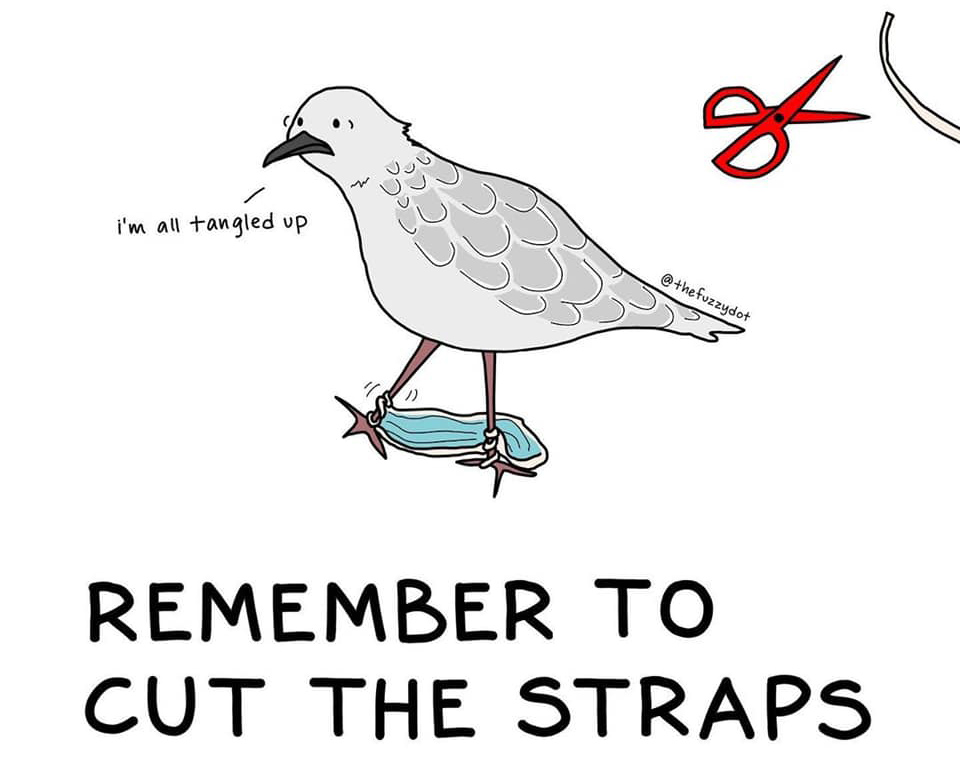
FAQ's
- Critical worker furloughing
- FAQ's - Rapid Antigen Tests
- Preparing to quarantine - checklist
- I have tested positive for COVID-19
- I am a close contact and have no symptoms
- I am a close contact and a critical worker
- I am a close contact with symptoms
- I am not a close contact and I have symptoms
- Testing and isolation payment scheme
- Testing and isolation protocols
- Removal of casual contacts
- Registering positive results online
- Completing a Rapid Antigen Test COVID-19 Symptoms
- Where can I get a PCR test?
